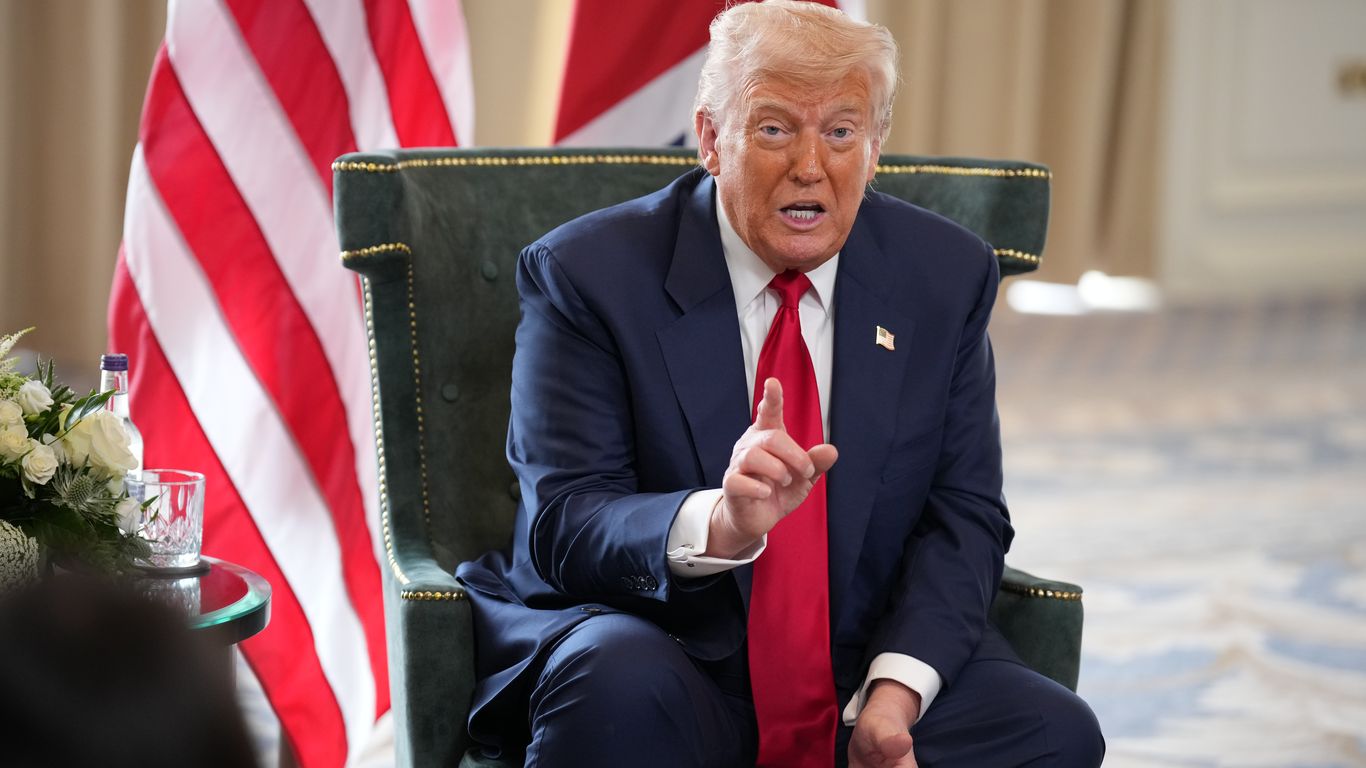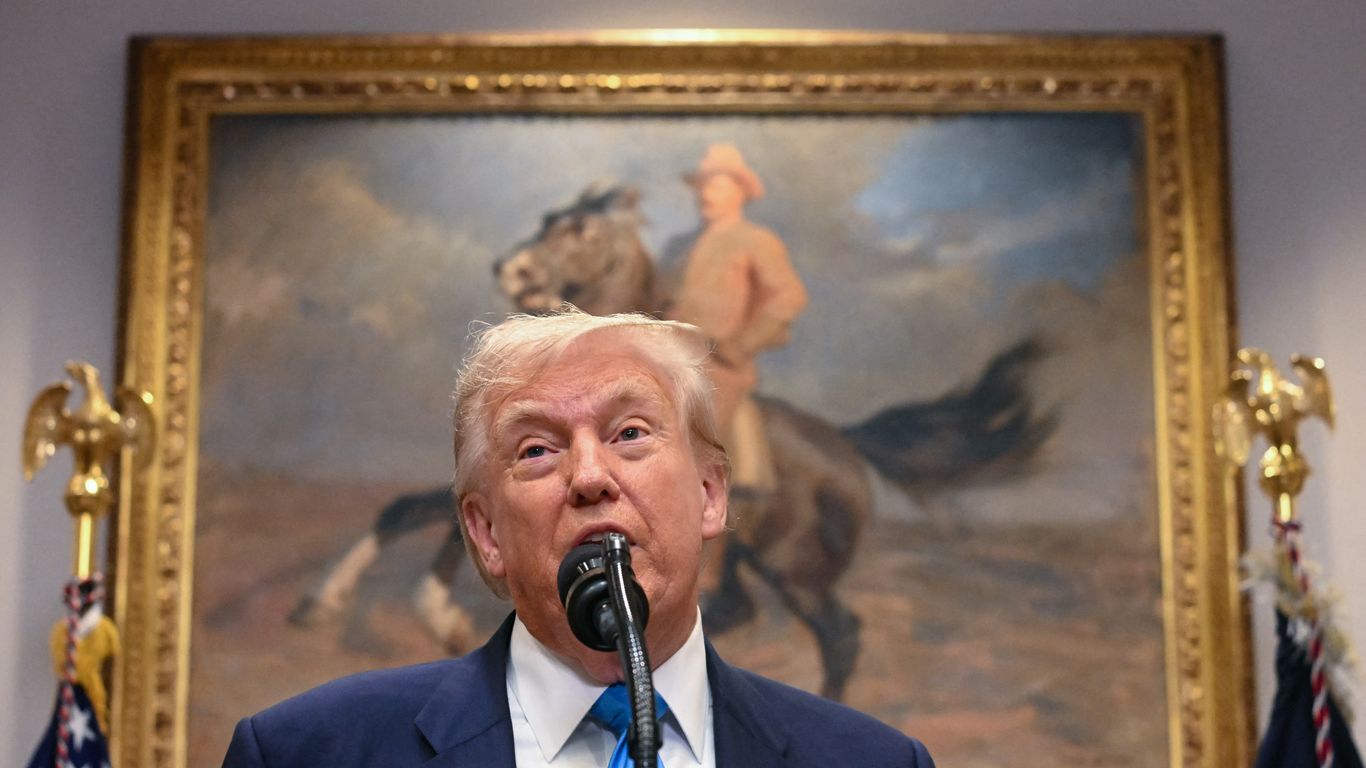Controversy Surrounding Trump Prosecutor and Potential Violations of the Hatch Act

Introduction
The recent news of former Trump prosecutor Jack Smith being investigated by the Office of Special Counsel has sparked controversy and concern. Smith, who famously pursued two cases against Donald Trump, is now facing potential consequences for potentially violating the Hatch Act.
Key Details
The Hatch Act, enacted in 1939, is a federal law that prohibits federal employees from engaging in certain political activities. This includes using their official authority or influence to interfere with or affect the result of an election. The investigation into Smith's actions stems from his involvement in the cases against Trump, which some believe may have crossed the line into political bias.
This is not the first time Smith has faced scrutiny for his actions. In 2019, he was reprimanded by the Justice Department for using his social media accounts to criticize Trump and his supporters. This new investigation raises questions about the impartiality and integrity of the justice system.
Impact
The potential consequences for Smith could have far-reaching implications. If found to have violated the Hatch Act, he could face disciplinary action, such as suspension or even removal from his position. This would not only have personal consequences for Smith but could also damage the public's trust in the justice system.
Furthermore, this investigation raises concerns about the potential political motivations behind the cases against Trump and the role of the Office of Special Counsel
About the People Mentioned
Donald Trump
Donald John Trump, born June 14, 1946, in Queens, New York, is an American businessman, media personality, and politician. He graduated from the University of Pennsylvania’s Wharton School in 1968 with a degree in economics. In 1971, he took over his family’s real estate business, renaming it the Trump Organization, through which he expanded into building and managing skyscrapers, hotels, casinos, and golf courses. Trump gained widespread fame as the host of the reality TV show *The Apprentice* from 2004 to 2015, which helped establish his public persona as a successful entrepreneur. Trump entered politics as a Republican and was elected the 45th president of the United States, serving from 2017 to 2021. His presidency was marked by significant policy actions including tax cuts, deregulation, the appointment of three Supreme Court justices, renegotiation of trade agreements (notably replacing NAFTA with the USMCA), and a focus on immigration control including border wall expansion. He withdrew the U.S. from international agreements such as the Paris Climate Accord and the Iran nuclear deal, and engaged in a trade war with China. His administration’s response to the COVID-19 pandemic was criticized for downplaying the virus’s severity. Trump was impeached twice by the House of Representatives—first in 2019 for abuse of power and obstruction, and again in 2021 for incitement of insurrection—but was acquitted by the Senate both times. After losing the 2020 election to Joe Biden, Trump challenged the results, culminating in the January 6, 2021, Capitol riot. He remains a central figure in American politics, having won the 2024 presidential election and returned as the 47th president in 2025, continuing to promote policies aimed at economic growth, border security, and military strength[1][2][3][4].
About the Organizations Mentioned
Office of Special Counsel
The United States Office of Special Counsel (OSC) is an independent federal agency established on January 1, 1979, with a mission to protect the integrity of the federal workforce and government operations. Originally part of the Merit Systems Protection Board (MSPB), the OSC became a fully independent agency in 1989 following the passage of the Whistleblower Protection Act (WPA), which strengthened its authority to safeguard federal employees from retaliation for reporting wrongdoing. The OSC’s core responsibilities include investigating and prosecuting prohibited personnel practices—such as reprisal for whistleblowing—and enforcing the Hatch Act, which restricts partisan political activity by government employees. It also enforces the Uniformed Services Employment and Reemployment Rights Act (USERRA), ensuring that service members are protected from employment discrimination due to their military service. The agency provides a secure channel for federal employees to disclose violations of law, gross mismanagement, waste of funds, abuse of authority, or threats to public health and safety. Over the years, the OSC has played a pivotal role in promoting transparency and accountability in government. Notable achievements include the recognition of whistleblowers who have exposed critical health and safety concerns, such as those in the mining industry, and the enforcement of rules that prevent political corruption and protect employee rights. The OSC’s annual reports and open government initiatives further demonstrate its commitment to transparency and public engagement. Currently led by a special counsel nominated by the president and confirmed by the Senate, the OSC operates with a budget that accounts for less than 0.1% of total federal spending. Its work is essential for maintaining trust in government institutions and ensuring that federal employees can report misconduct without fear of retaliation. For those interested in business and technology, the OSC’s efforts underscore the importance of ethical governance and the protection of whistleblowers in both public and private sectors.
Justice Department
The United States Department of Justice (DOJ) is the principal federal agency responsible for enforcing federal laws, ensuring public safety, and protecting civil rights. Headquartered in Washington, D.C., the DOJ operates under the leadership of the Attorney General, who serves as a key member of the President’s Cabinet. As of 2025, Pam Bondi holds this position, having taken office in February and quickly shaping the department’s priorities. Established in 1870 during President Ulysses S. Grant’s administration, the DOJ’s roots trace back to the creation of the Attorney General’s office in 1789. Over the years, it has grown into a vast organization with more than 115,000 employees and over 40 component agencies, including the Federal Bureau of Investigation (FBI), Drug Enforcement Administration (DEA), and U.S. Marshals Service. The DOJ also houses specialized divisions for criminal, civil, antitrust, tax, civil rights, and national security matters, and oversees 94 U.S. Attorney offices nationwide. The DOJ’s mission centers on upholding the rule of law, safeguarding national security, and defending civil liberties. In 2025, the department has shifted its enforcement focus, prioritizing areas such as healthcare fraud, customs and tariff evasion, and corporate misconduct, especially involving foreign adversaries and financial gatekeepers. Recent policy changes have emphasized efficiency in investigations and reduced reliance on corporate compliance monitors, reflecting a broader effort to minimize regulatory burdens on businesses. Notably, the DOJ has also been tasked with reviewing past government conduct to address concerns about the “weaponization” of federal agencies, ensuring accountability and restoring public trust. For business and technology leaders, the DOJ’s evolving priorities—particularly in areas like cybersecurity, antitrust, and international trade—have significant implications for compliance, risk management, and corporate governance.












